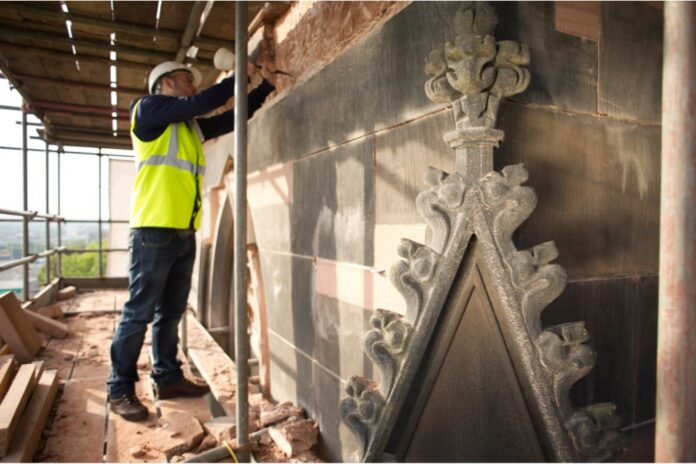Who doesn’t appreciate the aesthetic value concrete surfaces bring to our homes, whether it’s a polished concrete floor that reflects your personal style or a weather-beaten driveway adding character and toughness to your residence? But let’s face it; these surfaces are thrown to the mercy of environmental elements. How do we ensure their longevity while maintaining their unique beauty, unspoiled? What if we told you that you could achieve both, with just one product – Concrete sealers?
This comprehensive guide aims to make you an expert on the topic. By the end of it, you’ll know all there’s to understand about different types of concrete sealers – their benefits, drawbacks, and most importantly, which sealer suits your space the best. So, let’s embark on this journey of discovery!
What Are Concrete Sealers?
Unlike the mysterious name, concrete sealers are simple yet incredibly effective. Like a trusted watchdog, they stand guard over your concrete surfaces against damage, extending their lifespan and retaining their appeal. Concrete sealers come in many forms, each with its own unique properties and application areas. Here’s a brief overview:
Acrylic Sealers
Famed for their versatility and adaptability, Acrylic sealers are amongst the most commonly used. They are easy to apply, dry quickly and can be used both indoors and outdoors. However, they don’t fare well under heavy wear and are liable to yellowing under prolonged exposure to sunlight.
Epoxy Sealers
Epoxy sealers, while somewhat a bit more on the pricey side, are a heavy-duty companion for your concrete surfaces. They form a thick and high-gloss layer, making them perfect for areas like garages and industrial spaces. But bear in mind, these are not the best for outdoor use due to their tendency to yellow under sunlight.
Silicate Sealers
Say hello to “the hardeners”! Silicate sealers don’t just protect your surfaces but strengthen them. Fantastic, isn’t it? When applied, they penetrate and react with concrete, providing increased hardness and resistance. Keep in mind though, they don’t offer much when it comes to preventing surface damage like etching or staining.
Siliconate Sealers
Perfect for outdoor applications, siliconate sealers are water repellent and resistant to wear. They provide excellent surface resistance against salt, acid, oil, and grease. However, they may darken the concrete surface and lead to a somewhat slippery finish when wet.
Urethane Sealers
Urethane sealers are your knight in shining armor. Offering excellent resistance to chemicals, abrasions, and UV damage, they are a massive favourite for high-traffic areas. On the flip side, they are an expensive pick, and the application can be a tricky affair, requiring a dry and properly-prepped surface.
Conclusion:
So there you have it – A comprehensive guide towards understanding the different types of concrete sealers, each unique in their property and application. While some deliver unbeatable resistance against rough weather conditions, others are designed to cater to indoor aesthetics, adding a glossy finish to your interior surfaces. Remember, choosing the right sealer can prolong your favourite concrete surface’s life, ensuring that your home’s unique character remains intact for years to come. Choose wisely and let your surfaces grace your surroundings, beautifully sealed and protected.


